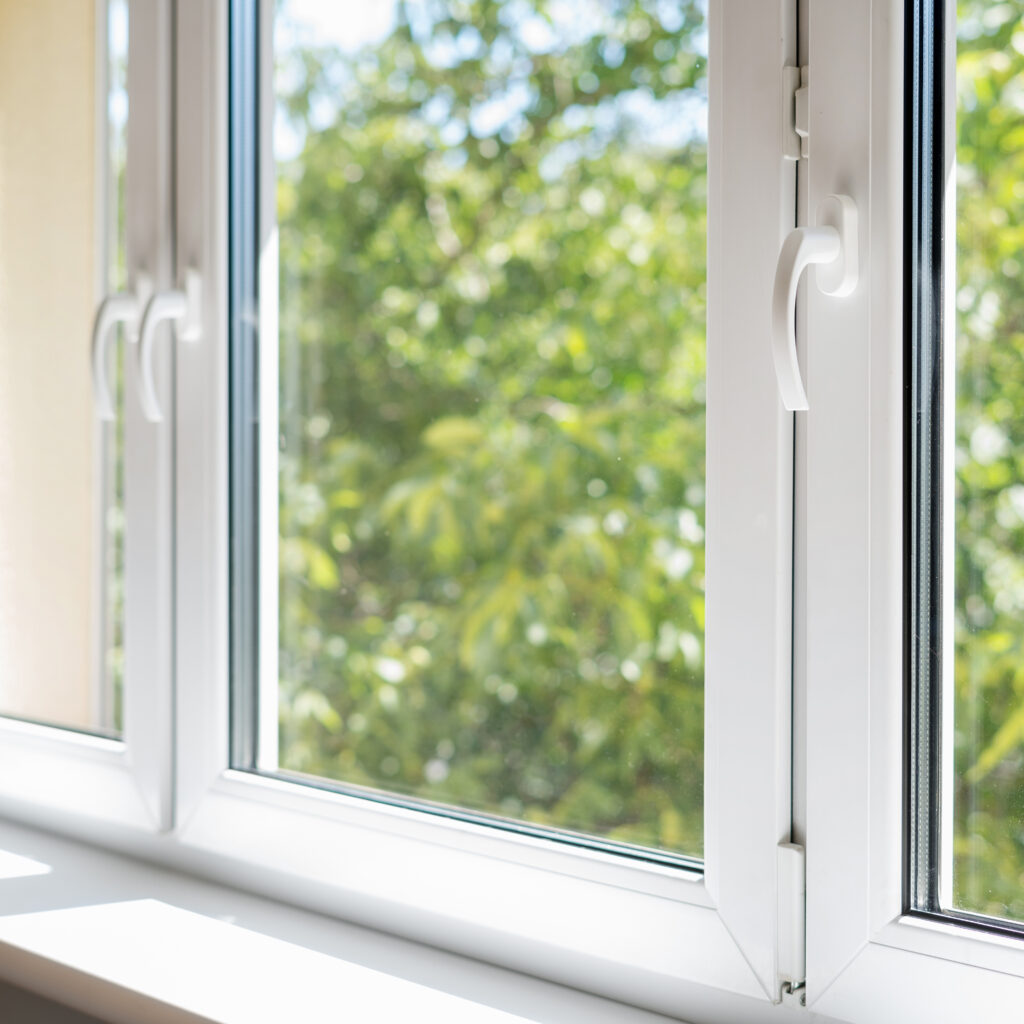What’s the Best Frame Material for Replacement Windows?
Choosing the right frame material for your replacement windows is a crucial decision that impacts not only the look of your home but also its energy efficiency, durability, and maintenance requirements. With various options available on the market, it’s essential to understand the pros and cons of each material to determine what best suits your home’s needs. Below, we’ll dive into the most common window frame materials—vinyl, wood, fiberglass, and aluminum—and explore their benefits and drawbacks.

Vinyl Window Frames
Vinyl is one of the most popular materials for replacement windows, and for good reason. It’s affordable, low-maintenance, and provides excellent energy efficiency. Vinyl frames are made from PVC (polyvinyl chloride), which offers superior insulation compared to other materials.
Pros:
- Energy Efficient: Vinyl frames have excellent thermal insulation, helping keep your home warm in the winter and cool in the summer, potentially lowering energy bills.
- Low Maintenance: Vinyl doesn’t require painting or sealing and is resistant to moisture and insects.
- Cost-Effective: Vinyl is one of the more affordable frame options on the market.
Cons:
- Limited Color Options: While vinyl frames are available in a variety of colors, they cannot be painted, so customization options are limited.
- Not as Durable as Other Materials: While vinyl frames are long-lasting, they may not hold up as well in extreme climates compared to materials like fiberglass.
Wood Window Frames
Wood frames offer a timeless, classic look that appeals to many homeowners. They provide excellent insulation and can be painted or stained to match the décor of your home. However, wood frames require more maintenance than other materials.
Pros:
- Aesthetic Appeal: Wood frames offer a natural, attractive look and can be customized with different paints and stains.
- Excellent Insulation: Wood is an excellent insulator, helping to keep your home energy-efficient.
- Long Lifespan: With proper care, wood frames can last for decades.
Cons:
- High Maintenance: Wood requires regular upkeep, such as painting or staining, to protect against rot, mold, and insects.
- Cost: Wood frames tend to be more expensive than vinyl or aluminum.
- Susceptible to Moisture: In humid climates, wood can warp or rot if not properly maintained.
Fiberglass Window Frames
Fiberglass is a relatively new material in the window frame market but is quickly gaining popularity due to its durability and energy efficiency. They are made from glass fibers and resin, making them strong and resistant to temperature fluctuations.
Pros:
- Durability: Fiberglass is one of the most durable window frame materials, withstanding extreme weather conditions and temperature changes.
- Energy Efficient: Fiberglass frames offer excellent insulation and can help reduce heating and cooling costs.
- Low Maintenance: Similar to vinyl, fiberglass doesn’t require frequent maintenance.
Cons:
- Cost: Fiberglass frames are generally more expensive than vinyl, although less costly than wood.
- Limited Color Choices: Like vinyl, fiberglass frames come in limited colors and cannot be painted.
Aluminum Window Frames
Aluminum frames are lightweight, durable, and resistant to corrosion. They are often used in commercial buildings but are also a viable option for residential properties. However, aluminum is a poor insulator, making it less energy-efficient.
Pros:
- Durability: Aluminum is resistant to rust and corrosion, making it an ideal choice for coastal areas.
- Sleek Design: Offer a modern, slim-profile design that maximizes the glass area, providing better views.
- Low Maintenance: Aluminum frames require little maintenance compared to wood.
Cons:
- Poor Insulation: Aluminum conducts heat and cold, making it less energy-efficient unless it comes with a thermal break.
- Condensation: Due to its poor insulation, aluminum frames can lead to condensation issues, particularly in colder climates.
Which Frame Material is Right for You?
When choosing the best frame material for your replacement windows, consider factors such as your budget, climate, desired aesthetic, and how much maintenance you’re willing to do.
- For homeowners seeking affordability and low maintenance, vinyl is an excellent option.
- If you prioritize aesthetics and are willing to invest in upkeep, wood frames provide beauty and charm.
- For extreme durability and energy efficiency, fiberglass is a top choice.
- If you live in a coastal area or prefer a sleek, modern look, aluminum might be the way to go.
Conclusion
Selecting the right frame material is essential to ensure your replacement windows not only look great but also perform well over time. Whether you opt for vinyl, wood, fiberglass, or aluminum, each material has unique advantages that can cater to your specific needs. If you’re unsure which option is best for your home, consult a trusted home improvement professional to help guide you through the selection process.







